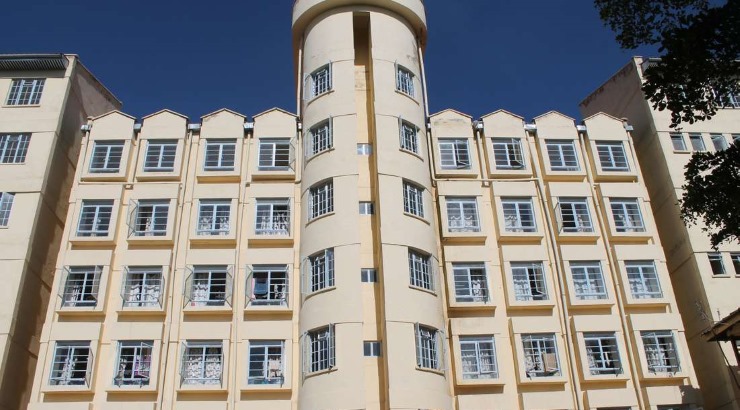Residential Projects
Property Developers Eye Big Profits from Student Housing
Universities are totally incapable of accommodating a majority of their students.

Once upon a time, university students in Kenya were offered high-quality accommodation within their campuses as the State had then established infrastructure to support the number of students admitted to the country’s institutions of higher learning.
But as the local population expanded, the demand for higher education grew and universities expanded their campuses albeit at a slower rate compared to the market needs, a situation that left many campuses with severely stretched accommodation facilities.
Today, student housing in the country is big business. Universities, both private and public, are incapable of accommodating a majority of their students.
Official statistics show that the 31 public universities in the country can only accommodate 25 per cent of their students – forcing learners to seek alternative accommodation.
This has provided a huge opportunity for private developers who have been building hostels near universities to house learners who cannot find shelter within their campuses.
Although this has provided some relief to both the students and their schools, the private hostels are in most cases quite expensive and insecure.
Cases of students being mugged or raped as they walk to their hostels at night have been on the rise – prompting the universities to find ways to accommodate their students within the university campuses.
Several colleges are exploring the Public Private Partnership (PPP) model as a means to solve the housing crisis. Under this model, a developer builds a hostel and operates it for about 20 years to recoup his investment before handing over the facility to the university.
The PPP model, which is gaining popularity worldwide, is viewed as a favourable avenue for investors to put money into the public education sector to supplement State funding.
“The model is preferred mainly due to its ability to tie in the operation and maintenance aspect of an infrastructure asset, meaning facilities can remain in great condition for the entire life of the contract,” says Stanley Kamau, director for Public Private Partnership.
RELATED: State Woos Investors in Sh20bn Student Hostels Project
At the prodding of several public universities, the Kenyan government is currently seeking investors to bankroll a Sh20 billion student housing scheme that is expected to ease the severe shortage of bed spaces for public university students.
Officials from the National Treasury’s Public Private Partnership (PPP) Unit last month held an investor conference in Nairobi to sell the idea to potential investors who the government hopes to partner with to set up 30,000-bed spaces in three public varsities that are struggling with a severe shortage of student accommodation.
According to the Treasury Cabinet Secretary Henry Rotich, the institutions that will benefit from the project include Moi University, South Eastern Kenya University (Seku), and Embu University College.
Mr Rotich had earlier said that Moi would get an additional 14,000 beds, while Seku and Embu would get 5,400 and 4,000 new beds respectively; bringing the total number of new bed spaces to 23,400 – a figure that has now been raised to 30,000.
The project will be undertaken on a build-operate-transfer system in which universities will provide land for construction while the developers will build the hostels, and operate them for about 20 years to recoup their investments before handing them over to the universities.
Other public institutions that have sought the State’s approval to use PPPs to set up student hostels include Jomo Kenyatta University of Agricultural Technology (JKUAT), Egerton, Maseno and the Kenya School of Government – all of which are seeking to add a combined 60,000 bed spaces.
Kenyatta University (KU) has already partnered with New York-based private equity firm Africa Integras to build a 10,000-capacity hostel on a 20-acre piece of land in its Kahawa main campus on Thika Road in Nairobi.
Africa Integras, which invests in developing education infrastructure projects, won the tender to lead the PPP investment in 2014 and signed a contract with KU in June 2015.
Under the agreement, a consortium led by the US firm with local partners Triad Architects, EPCO contractors, and Broll Kenya Facility Managers will build and operate the hostel for 20 years to recoup their investment.
The facility which is earmarked for completion in two years is the first major PPP infrastructure project since the construction model was entrenched into law in 2013.
RELATED: New York Firm to Begin Work on Sh5bn KU Hostel
In addition to investors eying lucrative partnership deals with universities, a host of local and international developers are seeing the shortfall as a great opportunity to set up affordable accommodation facilities for students who may never want to live on campus.
UK-based private equity fund Helios last year signed a Sh7.4 billion deal with property firm Acorn Group for the construction of 3,800 hostels in Nairobi.
The first bunch of hostels will be built near Strathmore, USIU and Daystar where the investors have acquired parcels of land for the project.
The World Bank’s private lending arm – International Finance Corporation (IFC) – which has committed to finance the project to the tune of Sh4 billion has hailed the development as a great initiative that will help reduce the deficit in affordable student housing.














